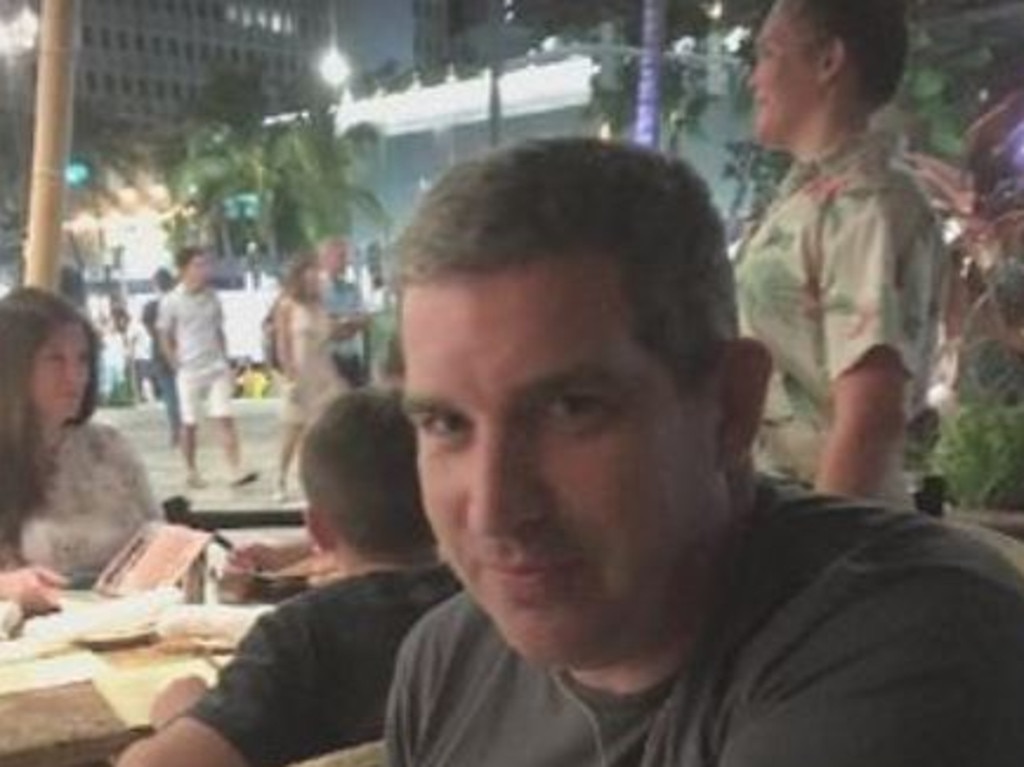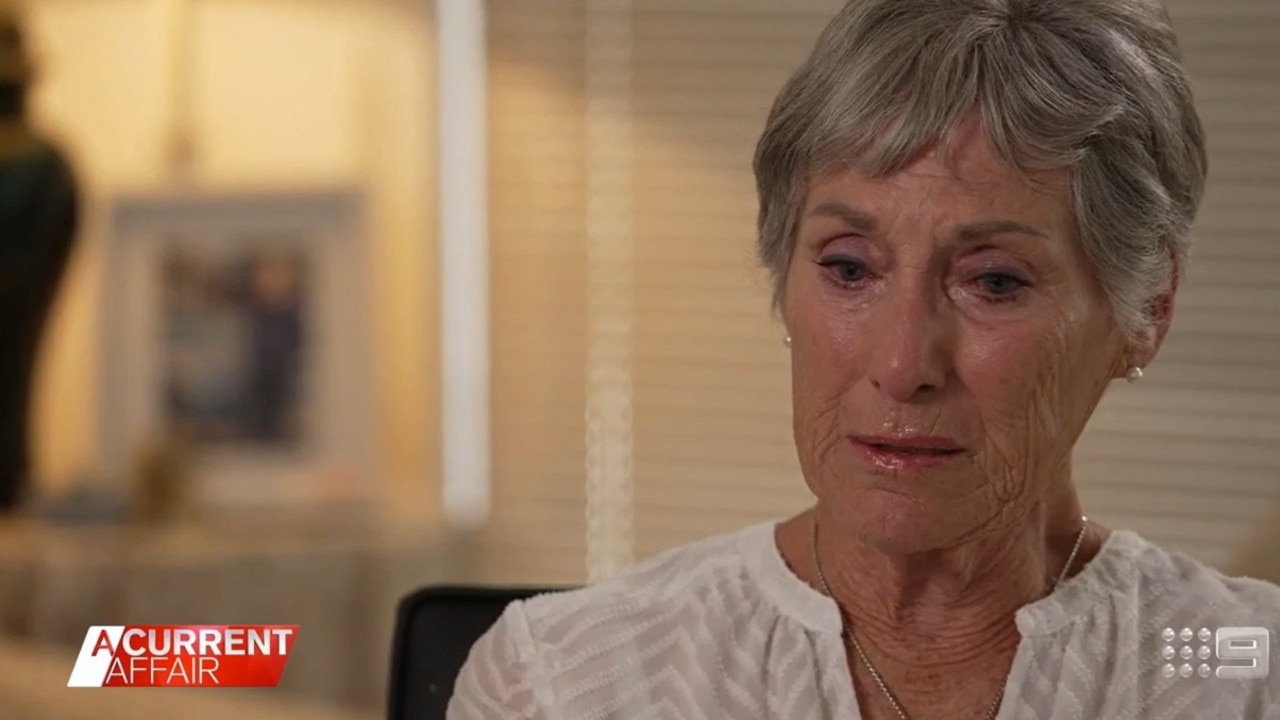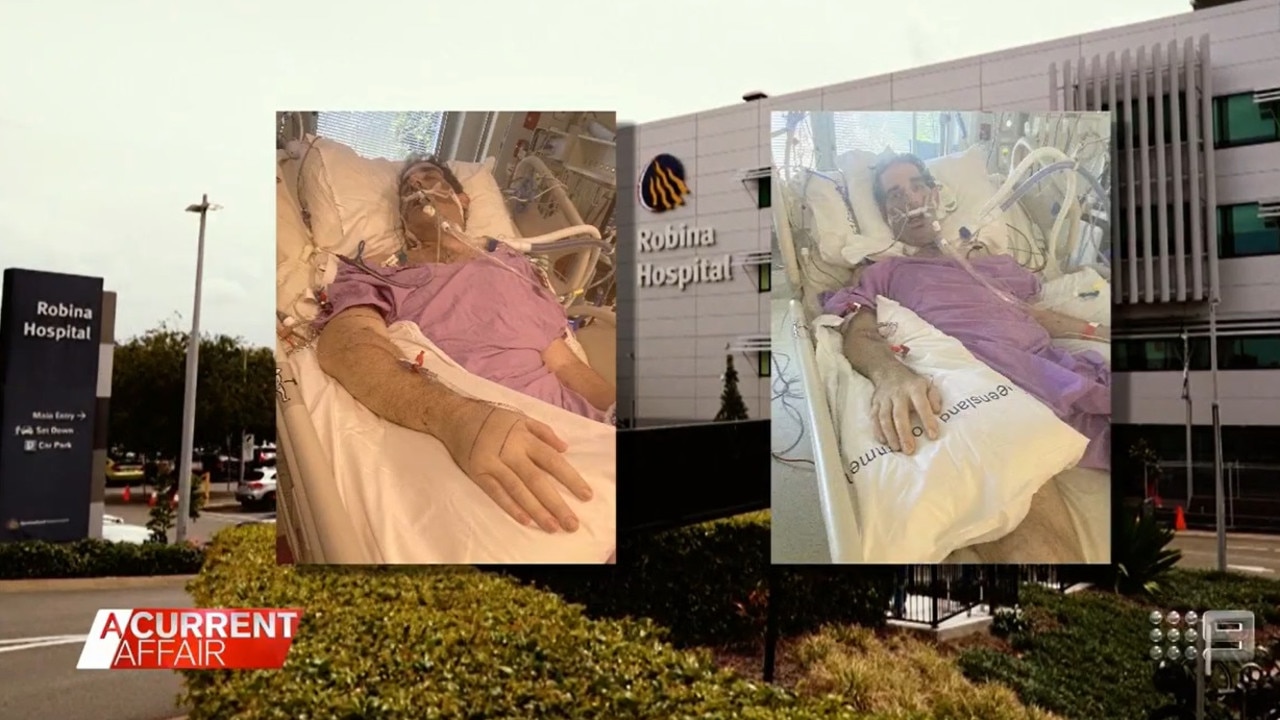Joshua Haigh
A heartbroken mother is desperate for answers after her austisic son was allowed to starve to death in hospital.
A mother is calling for an investigation into the failings at a major Queensland hospital after her autistic son died from starvation while under the care of its doctors.
Stewart Kelly, 45, died at Robina Hospital in August last year from starvation and dehydration during a 33-day admission.
His devastated mother, Ann Jeffery, spent the entirety of her son’s life as his primary carer, making sure he was able to live a happy and fulfilled life.
“How can someone starve to death in a hospital?” Kelly‘s mother Ann Jeffrey told A Current Affair.
“He was allowed to reach that critical state within the hospital system. How can that be?”
Stewart Kelly, 45, died at Robina Hospital in August last year from starvation and dehydration during a 33-day admission.
Mr Kelly was not critically ill when he was admitted to hospital in May last year, but was in need of mental health treatment after developing anxiety which had sparked him to lose around 14kg.
During his first visit to Robina hospital he was admitted for eight days before being discharged after showing some improvement.
However, Mr Kelly’s struggles sadly continued over the coming months, and he was admitted for a second time in July after losing a further 28kg.
With his increasing weight loss and struggles to eat, Mr Kelly’s family had expected him to be given mental health treatment and placed on fluids.
Sadly neither of these things happened and over the coming weeks Kelly’s condition spiralled until he eventually died of starvation.
Kelly’s mother is desperate for answers in a bid to make sure the same thing doesn’t happen again to another family. Picture from ACA.
“He finally became incontinent,” said Mrs Jeffrey.
“We found him several times in a wet bed.”
When the hospital finally decided to give her son a feeding tube it was all too late, and Mr Kelly succumbed to starvation after 21 days in intensive care.
“He was cheated of 40 more years of his life,” said his mother.
“I felt the joy had gone out of my life. I felt that he had been left to die possibly because of his disability.”
On Mr Kelly’s death certificate, autism was listed as a cause, along with multi-organ dysfunction, starvation and dehydration.
Following Mr Kelly’s tragic death, a Gold Coast Health spokeperson told news.com.au that his death was “preventable” and agreed that there had been “significant failures” in his treatment.
Gold Coast Health backed in Robina Hospital’s quality of service, declaring it “exceeds that of equivalent hospitals nationally.”
“Over the past three years, Robina’s Hospital Standardised Mortality Rate (HSMR) has averaged 99.6 compared to a peer group average of 113.6 (lower being a better result than peer group hospitals),” the spokesperson told news.com.au.
The Hospital Standardised Mortality Rate (HSMR) for Robina Hospital for 2023 (up to and including August, which is the latest period for which comparison figures are available) is 79.9, against a peer group average of 100.
Mr Kelly tragically died in hospital after not being given the correct care by those treating him. Picture from ACA.
“This means fewer deaths have been recorded at Robina Hospital than would be expected (and less than what has been recorded at peer group hospitals).”
The spokesperson offered an “unreserved apology” for Mr Kelly’s death.
“Open disclosure discussions have been held with his family, and we’ve offered an unreserved apology for his death,” they said.
“His family has been stepped through the full Root Cause Analysis (RCA) report, and provided a summary of it, including major findings and all recommendations (in the ‘Closing the Loop’ document).
“The causes of our failures were complex, and we have made significant changes in practice following Mr Kelly’s death.”
The hospital reportedly identified 11 failures that directly contributed to Mr Kelly’s death, but as of yet no single individual has been referred to the Australian Health Practitioners Regulation Authority, which is the authority responsible for regulating conduct of medical staff.
“I want to know what’s been implemented now 15 months later, after I buried my son, what have they done in actual real terms?” she said.
Heartbreakingly, while Mrs Jeffrey has called for a coroner’s inquest into what happened to her son, it’s not yet known if one will take place.
“I want to know what happened to him before I die,” added the heartbroken pensioner.


